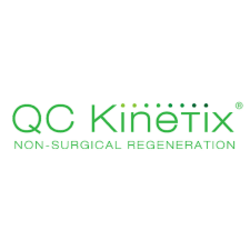Veganism is a way of eating, but also a way of life, which is becoming more and more popular from year to year. You may have heard about the changes that occur after the transition to veganism. We want to highlight the topic of pregnancy on a vegan diet in this article.
Is a vegan diet safe for pregnant women?
Yes! The expectant mother should take care of providing herself with the right amount of nutrients and supplements. A balanced vegan diet is considered one of the healthiest nutrition in the world. Keep reading if you want to know how to be vegan during pregnancy.
The American Dietetic Association believes that adequately planned vegetarian diets, including a vegan diet, are healthy, consistent with nutritional needs, and can provide health benefits for the prevention and treatment of certain diseases.
Well-planned veganism is suitable for people at all stages of life, including pregnancy, childbirth, lactation, the period of the baby, childhood, youth, and professional sports. Some doctors are not yet sure that during pregnancy, you can eat exclusively vegan foods. Perhaps this is due to stereotypes imposed by the past, and the lack of desire to develop in other directions – we do not know. However, pregnant women who are under the care of a dietitian specializing in vegan diets do not have any nutritional deficiencies or impaired fetal development, or the development of weight problems at birth.
Women who follow a vegan diet are at higher risk of lacking an adequate amount of protein, iron, calcium, omega-3, zinc, vitamin B12, and vitamin D, the need for which increases during pregnancy. It is also the reason pregnant vegans need to eat more than women who eat meat and vegetarians to cover their daily nutritional needs. But we want to remind you right away. Usually, vegan foods are less caloric, so extra pounds should not scare you.
Protein
The American Board of Nutrition claims that a vegan lifestyle that contains vegetable proteins can provide protein of the same quality as animal protein. During pregnancy and lactation, the demand for protein increases, so the amount of vegetables you eat should also increase in your vegan diet plan. Some higher-protein veggie sources include a variety of legumes (for example, lentils, beans, chickpeas, peanuts), quinoa, nuts, seeds, and green vegetables. To increase the biological value of vegetable protein, the right combination of foods is essential.
For example, some meal ideas may include:
- porridge with mushrooms
- vegetable cabbage rolls with oatmeal
- vegetable stew with whole grain bread
- potato dumplings
Calcium and Vitamin D
When forming the bones of an unborn child, you should especially take care of the appropriate amount of calcium and consume vegan foods rich in this trace element. Some great sources of calcium and vitamin D include almonds, broccoli, various types of cabbage, arugula, romaine lettuce, kale, beans, tofu, figs, and oranges.
Vitamin D has a positive effect on calcium absorption, which even plays a vital role in the functioning of the body. Additional calcium supplements during pregnancy are not needed, except for the doctor’s recommendations. But, the intake of vitamin D3 is necessary for your vegan meal plan and not only in the autumn-winter period.
Vitamin B12
Vitamin B12 should be supplemented, both for women during pregnancy, and for everyone else who eats exclusively vegan foods. Lack of this vitamin occurs in 60% of vegans, as well as in vegetarians who do not consume it additionally. The deficiency of B12 increases the risk of Down syndrome in a child.
Iron
During pregnancy, a woman produces more blood, so the level of iron should be at an appropriate level. Plant sources of this trace element are more sensitive to inhibitors (substances that slow down absorption), so you need to combine them with vegetables and fruits that contain vitamin C. This combination increases the absorption of iron, which is favorable for our body. Therefore, it significantly improves performance more than ones from animal products.
Vegan products full of iron include greens, soy and its products, sprouted wheat, parsley, beans, broccoli, red cabbage, dried fruits (especially dried apricots), whole grain bread, pasta and cereals, pumpkin and sunflower seeds.
Sources of vitamin C include bell peppers, tomatoes, lemon juice, oranges and herbs. If necessary, supplement iron as recommended by a doctor.
Omega 3 Fatty Acids
During pregnancy, Omega-3 is necessary due to its vital role in the development of the nervous system of the unborn baby. Vegans do not eat fish and eggs, so omega sources are flax, algae, burdock oil, herbs, soy, and its products, chia seeds, and hemp seeds. However, these fatty acids require an appropriate ratio of Omega-3, -6, -9, so your doctor should determine this balance, and very often, supplements become the solution. However, you can search not only for top baby items for new moms but for supplements also.
Folic acid
Even though the vegan diet is more abundant in folic acid than traditional diets, women should still take a course on veganism before pregnancy and during, according to the doctor’s recommendations. Sources of folic acid in vegan foods include greens, wheat germ, Brussels sprouts, broccoli, red cabbage, spinach, beans, beets, peas, and oranges.
Zinc
Zinc deficiency during pregnancy can lead to impaired placenta, premature birth, and mental abnormalities in the infant. It also has a direct effect on the immune system of both the mother and the fetus.
The primary source of zinc is found in animal products – meat, eggs, liver, fish, and oysters. However, plant products are not inferior to them. For example: Calf liver contains 12mg of zinc per 100g of product and wheat germ also has 12 mg per 100g. Both beef and pumpkin seeds have 10mg of zinc per 100g of product.
The only incomparable leader among animal products is oysters, which contain 70 mg of zinc per 100 g. Other sources of zinc in plant foods are pumpkin seeds, sunflowers, wheat bran, wheat germ, onions, garlic, cocoa, and dates.
Setting priorities
For the entire period of pregnancy, the expectant mother needs to gain up to 10-12 kg. Thinner women can gain a little more, but not if you are susceptible to weight gain. While going vegan, we advise to have breakfast only with raw vegetables and fruits, and you can also use them as a snack between meals. It would be best if you remembered the different nutritional value of the products. For example, eating a piece of diabetic bread, or a serving of salad, or half a grapefruit, you will get 30 calories. However, the nutritional value of lettuce and grapefruit on a raw vegan diet will be significantly higher than bread.
Conclusion
A vegan diet can provide the baby and expectant mother with all the necessary nutrients, vitamins, and minerals, but for this, you need a well-selected and balanced diet, which is best determined by your dietitian. “One-sided” nutrition is inadequate for the development of the unborn child, doctors warn. Women who want to stay vegan should eat a special diet.
Are you open to trying a vegan diet while pregnant? Find a nutrition specialist or dietician near you!








